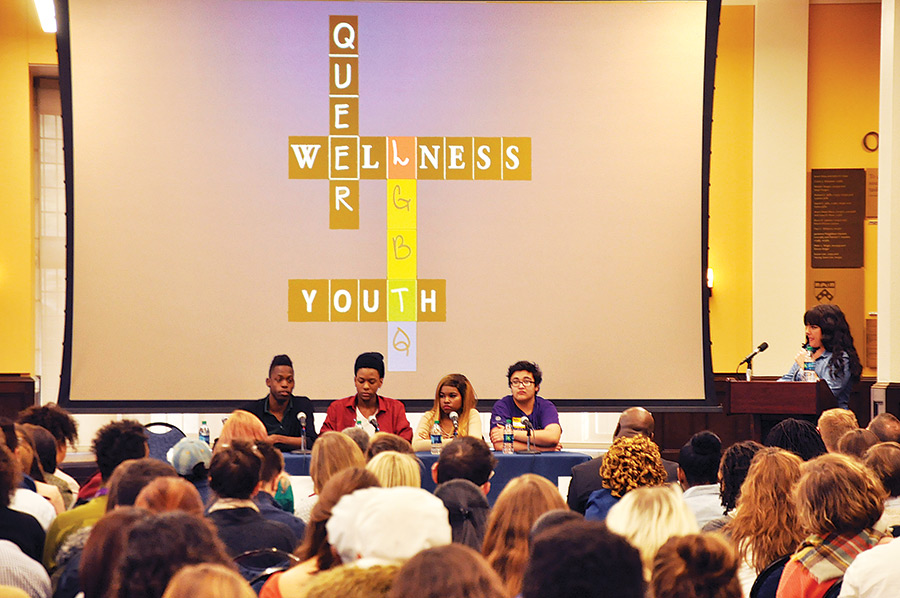A local university last week sponsored a conference to amplify the voices of LGBT young people and their needs.
The University of Pennsylvania’s March 24 event, “Queer Wellness: An Intersectional LGBTQ Youth and Health Conference,” included an afternoon of panel discussions, TED-style talks and interactive breakout sessions at the university’s Houston Hall.
Kel Kroehle and Phantazia Washington of The Attic Youth Center’s Bryson Institute moderated panel discussions entitled “Youth Perspectives on Experiences with Health Care” and “Youth Perspectives on Experiences with Institutions and Systems,” respectively.
Kroehle introduced her panel discussion with four young people — Aiden Castellanos, Rahsaan Galloway, Dionte Gill and Egypt Staley — by stating phrases young people typically hear.
“It’s just a phase,” Kroehle said, mimicking what adults often tell youth. “You’ll grow out of it. It’s the hormones speaking. You’re so mature for your age. You’re too young. You’ll understand when you’re older. It’s just puppy love.”
Kroehle’s panel discussed several issues that may occur for an LGBT person in the doctor’s office, such as being assumed heterosexual or cisgender. Additionally, they talked about problems they experienced with adultism and an overall uncomfortable feeling from doctors upon discussing sexual health.
Castellanos noted a small step providers can take to help LGBT youth.
“If a healthcare provider starts off by introducing themselves with their pronouns, I’m like, ‘Holy shit. Wow,’” Castellanos said, eliciting laughs from the audience. “That’s something that gets left out so often. I’ll know this person understands the difficulties in coming out and understanding different aspects of gender.”
Washington’s panel included three youth — Hazel Edwards, Giana Graves and Lydia Ramharack — who answered questions regarding homophobia and transphobia in school and healthcare.
Ramharack, a biology student at Penn and a lesbian, said her school is supportive overall: Fights with her father made her feel unsafe going home, but the university gave her tickets to Florida so she would not have to stay home for a long period of time.
However, she said, other smaller departments within the university would invalidate her experiences and would not provide her with accommodations.
“What schools can do is be more compassionate,” Ramharack said. “I don’t think that’s a hard thing to ask for and also don’t assume people’s experiences.”
Meanwhile, Edwards noted a positive experience within institutions. As a biracial trans woman, Edwards grew up as a brown child in a white household. She noted the effect of intersectionality once she discovered The Attic.
“The first time I heard ‘intersectionality’ was at The Attic Youth Center,” she said. “I was then able to understand and focus all of my identities. I felt like a piece of my culture, of my identities were not being seen or heard. When I started going to The Attic consistently, they gave me the ability to not only be unapologetically queer but be unapologetically black as well.”
Graves noted how trans people do not all have the same experiences.
“Cissexism is very real and we might not be clear of the things we carry around with us and the things that are pushed onto us,” Graves said. “I’m a binary trans person. I identify as a woman. I go by she/her pronouns. I don’t represent the entire trans community. There are other kinds of trans people. There are other kinds of trans women. We don’t all share the same exact experience.
“So when you meet a trans person, you’re meeting a person. You need to understand that person, that person’s needs, that person’s experiences, what that person had to deal with and what they bring to the table, because we don’t all bring the same thing to the table.”
